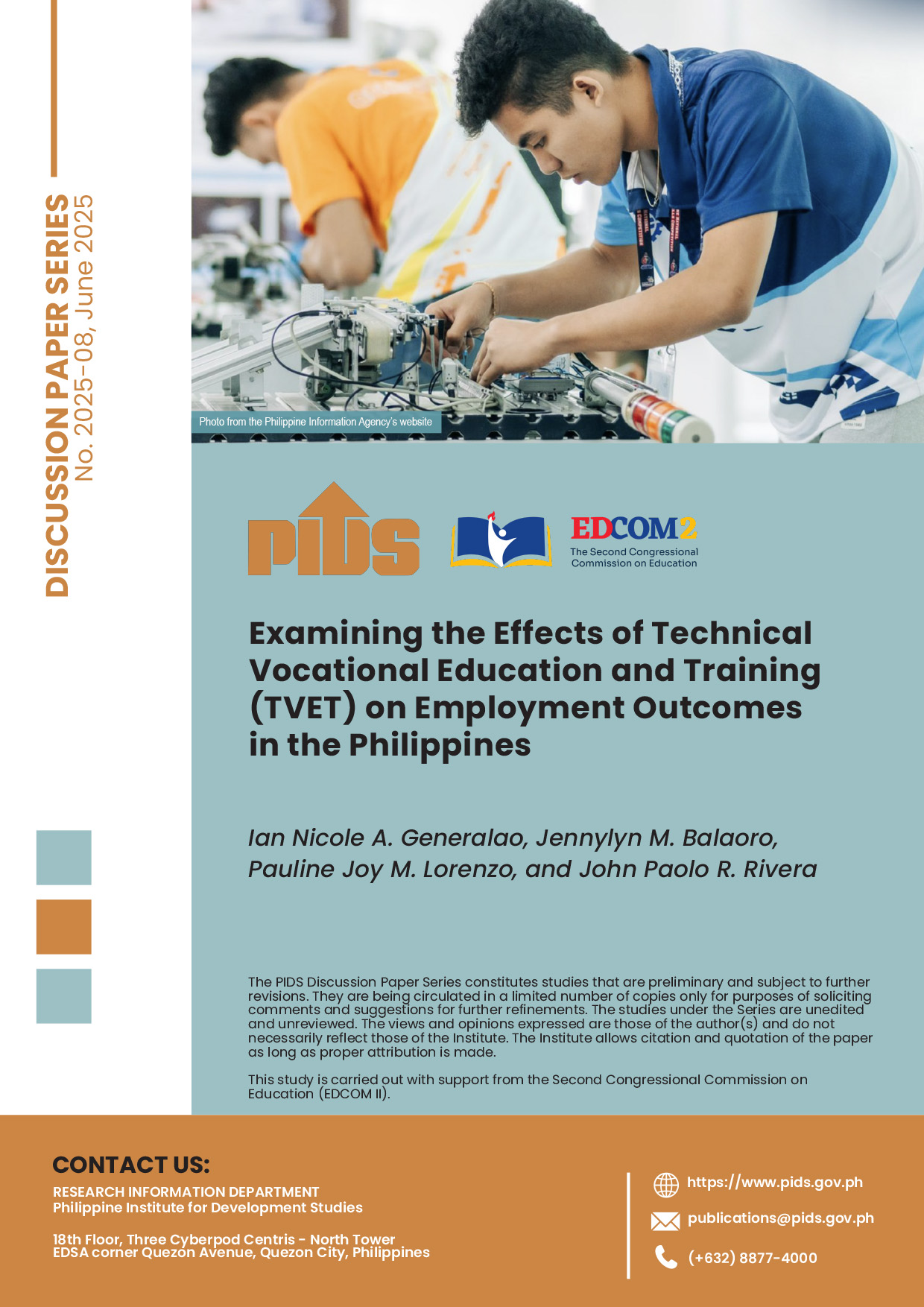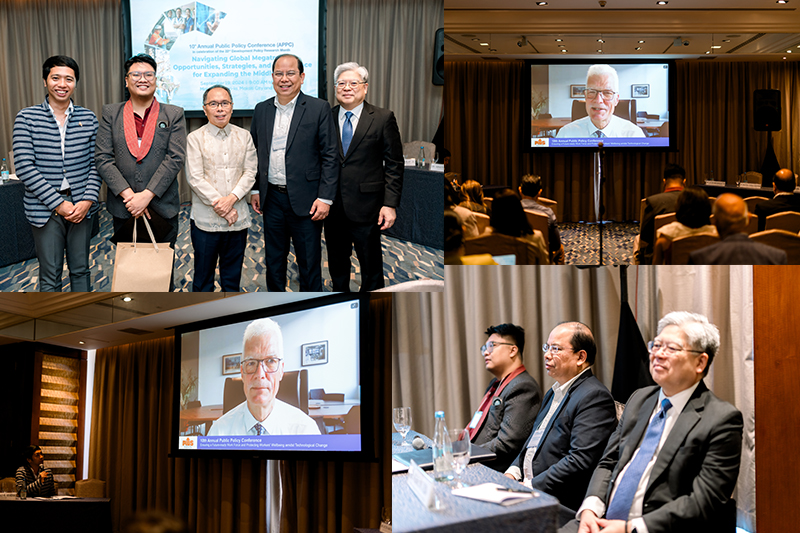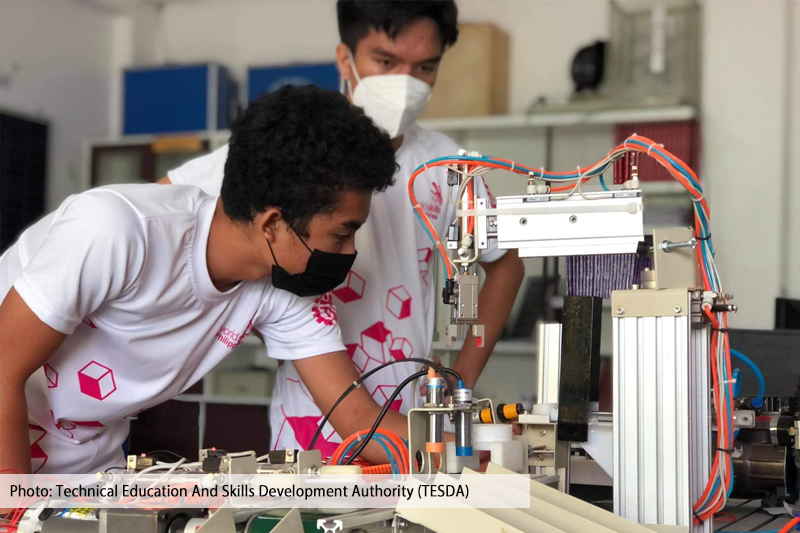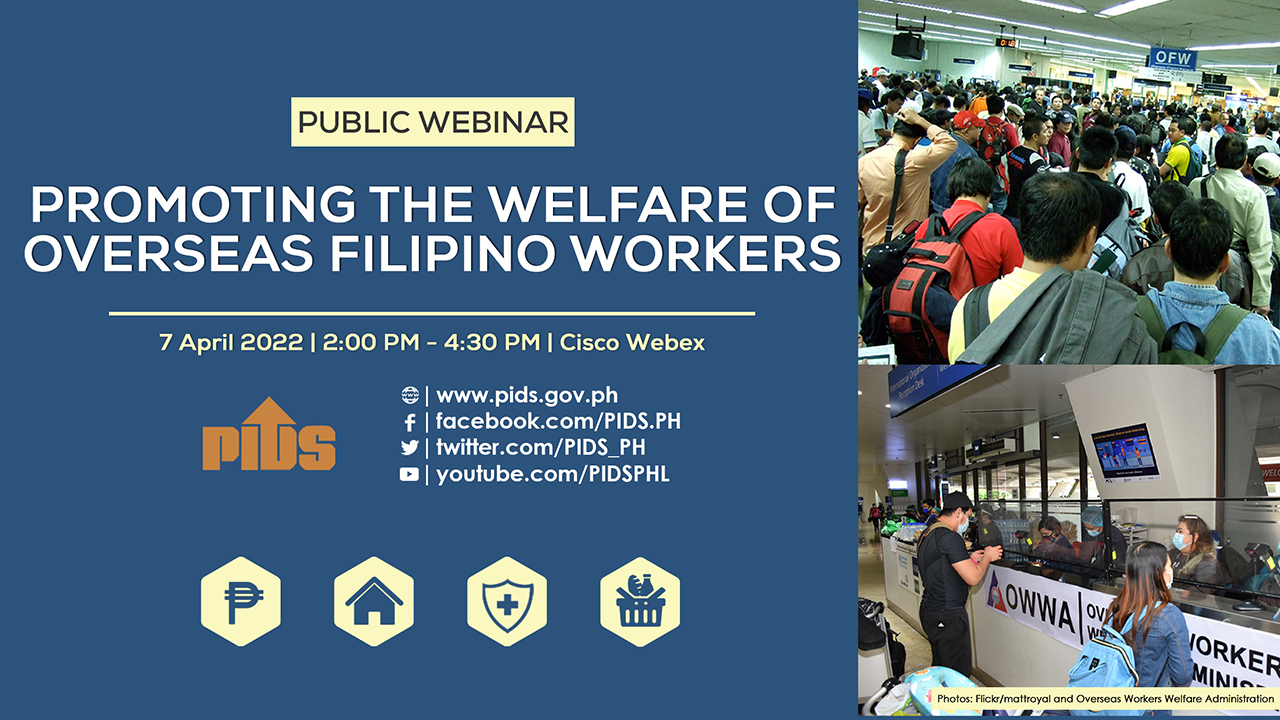The government must enforce regulations aimed at protecting overseas workers while at the same time ensure that increased protection does not restrict the deployment of workers.
According to a study conducted by the Scalabrini Migration Center (SMC), in collaboration with the state think tank Philippine Institute for Development Studies (PIDS), it is important to strike a balance between providing employment opportunities abroad and protecting overseas workers, in particular, overseas household service workers. The study noted that when protection restricts deployment, efforts to regulate and protect workers are usually set aside. This is simply because more deployment means more remittances for the government, more revenues for the migration industry, livelihood for households, and the availability of an occupation that is easily accessible to women migrants.
The SMC-PIDS study noted that domestic work entails risks and vulnerabilities to migrant workers, particularly to women. As such, there is a need for some protective measures to be in place. Nonetheless, the study also pointed that said risks continue to exist despite various measures to protect them at all stages of migration. For instance, the passage of the landmark Migrants Workers and Overseas Filipinos Act of 1995 and the introduction of Household Service Workers Reforms in 2006 were aimed at enhancing the protection of migrant workers. However, their potentials have not been realized because of the lack of enforcement and monitoring mechanism, the study observed.
In addition, the study also highlighted significant gaps in migrant workers` knowledge and understanding of government regulations. Based on a small survey of overseas Filipino domestic workers conducted for the study, many departing migrant workers were not aware of basic work rights and government regulations. A sizable percentage of domestic workers showed some tendency to let their employers make decisions about their work conditions, in part because of lack of information about decent work conditions.
`Knowing the right information is crucial to workers empowerment, particularly because they will have to engage with recruiters, employers and authorities in the course of the migration process. This means that policies are not properly communicated to stakeholders, particularly to workers and prospective workers,` the study noted.
Finally, there has been increasing recognition, locally and internationally, of the need to improve domestic workers` living and working conditions. This, in fact, is one of the topics under discussion in the 100th Session of the International Labor Conference currently held in Geneva with a theme `Building the Future with Decent Work.` There are certainly more policy initiatives and measures that need to be in place towards this end. As the study recommended, information programs on migration must be strengthened to promote awareness and understanding of basic policies, rights and decent work conditions among migrant workers. Government agencies should also conduct more mass media campaigns to reach a broader audience, including underground migrants. Likewise, comprehensive reintegration programs for returnees, particularly for distressed migrant domestic workers, need to be instituted.
According to a study conducted by the Scalabrini Migration Center (SMC), in collaboration with the state think tank Philippine Institute for Development Studies (PIDS), it is important to strike a balance between providing employment opportunities abroad and protecting overseas workers, in particular, overseas household service workers. The study noted that when protection restricts deployment, efforts to regulate and protect workers are usually set aside. This is simply because more deployment means more remittances for the government, more revenues for the migration industry, livelihood for households, and the availability of an occupation that is easily accessible to women migrants.
The SMC-PIDS study noted that domestic work entails risks and vulnerabilities to migrant workers, particularly to women. As such, there is a need for some protective measures to be in place. Nonetheless, the study also pointed that said risks continue to exist despite various measures to protect them at all stages of migration. For instance, the passage of the landmark Migrants Workers and Overseas Filipinos Act of 1995 and the introduction of Household Service Workers Reforms in 2006 were aimed at enhancing the protection of migrant workers. However, their potentials have not been realized because of the lack of enforcement and monitoring mechanism, the study observed.
In addition, the study also highlighted significant gaps in migrant workers` knowledge and understanding of government regulations. Based on a small survey of overseas Filipino domestic workers conducted for the study, many departing migrant workers were not aware of basic work rights and government regulations. A sizable percentage of domestic workers showed some tendency to let their employers make decisions about their work conditions, in part because of lack of information about decent work conditions.
`Knowing the right information is crucial to workers empowerment, particularly because they will have to engage with recruiters, employers and authorities in the course of the migration process. This means that policies are not properly communicated to stakeholders, particularly to workers and prospective workers,` the study noted.
Finally, there has been increasing recognition, locally and internationally, of the need to improve domestic workers` living and working conditions. This, in fact, is one of the topics under discussion in the 100th Session of the International Labor Conference currently held in Geneva with a theme `Building the Future with Decent Work.` There are certainly more policy initiatives and measures that need to be in place towards this end. As the study recommended, information programs on migration must be strengthened to promote awareness and understanding of basic policies, rights and decent work conditions among migrant workers. Government agencies should also conduct more mass media campaigns to reach a broader audience, including underground migrants. Likewise, comprehensive reintegration programs for returnees, particularly for distressed migrant domestic workers, need to be instituted.












